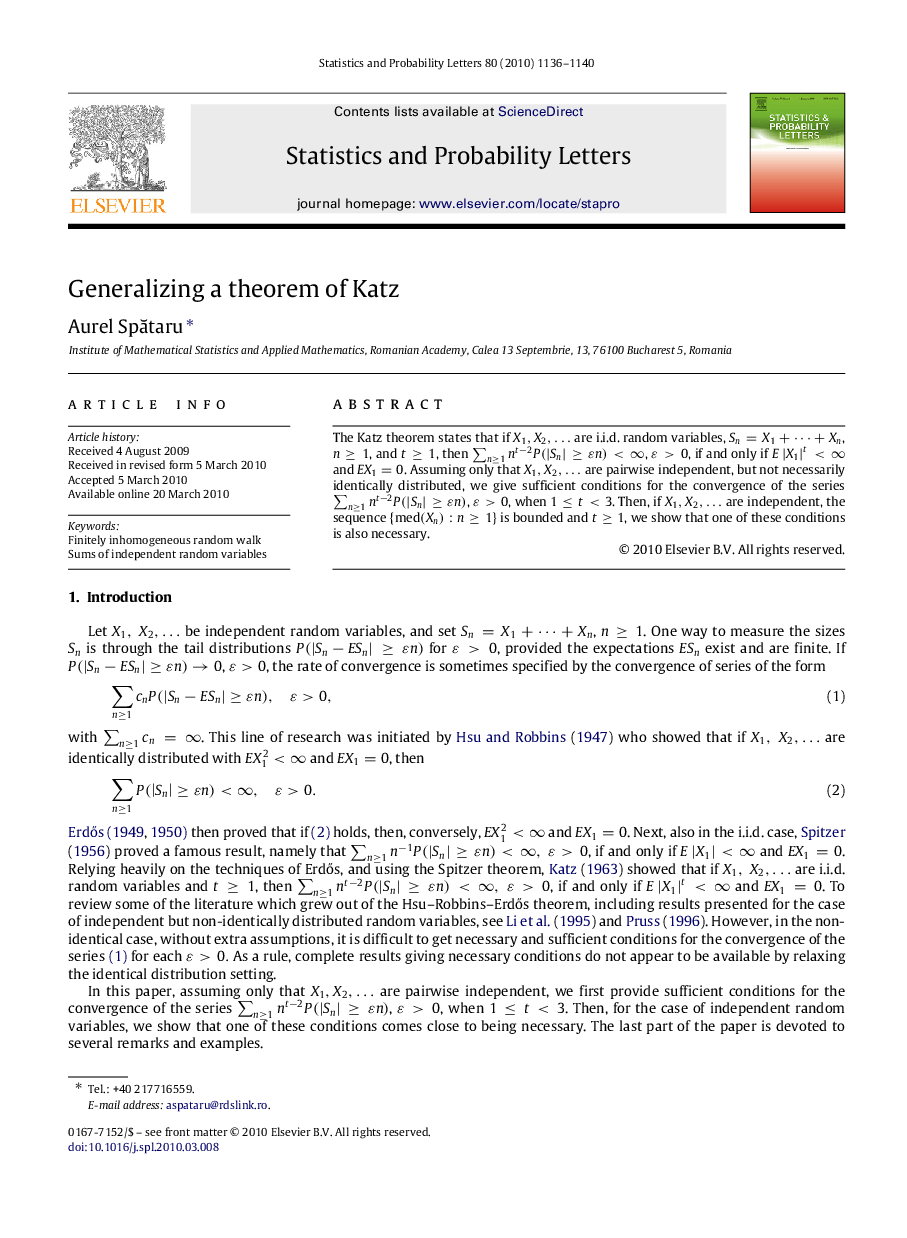| Article ID | Journal | Published Year | Pages | File Type |
|---|---|---|---|---|
| 1153154 | Statistics & Probability Letters | 2010 | 5 Pages |
Abstract
The Katz theorem states that if X1,X2,⦠are i.i.d. random variables, Sn=X1+â¯+Xn, nâ¥1, and tâ¥1, then ânâ¥1ntâ2P(|Sn|â¥Îµn)<â, ε>0, if and only if E|X1|t<â and EX1=0. Assuming only that X1,X2,⦠are pairwise independent, but not necessarily identically distributed, we give sufficient conditions for the convergence of the series ânâ¥1ntâ2P(|Sn|â¥Îµn), ε>0, when 1â¤t<3. Then, if X1,X2,⦠are independent, the sequence {med(Xn):nâ¥1} is bounded and tâ¥1, we show that one of these conditions is also necessary.
Keywords
Related Topics
Physical Sciences and Engineering
Mathematics
Statistics and Probability
Authors
Aurel SpÄtaru,
